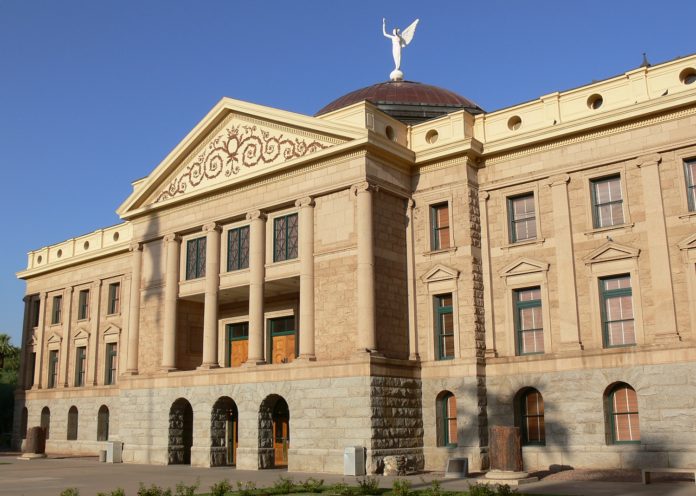
Arizona’s Secretary of State has certified that a voter initiative that would boost taxes on high-earning Arizonans to increase school funding will be on the November ballot.
Secretary of State Katie Hobbs announced Friday that a sample of petition sheets sent to county recorders came back with enough verified signatures for the Invest in Education Act to qualify for the ballot. It will be called Proposition 208.
The certification means voters will see just two initiatives this November, the education tax and a recreational marijuana legalization initiative, which will be Proposition 207. Two other measures whose backers sent qualifying signatures failed to make the ballot.
On Thursday, the state Supreme Court ruled that a measure that would ban surprise medical billing and prevent insurers from discriminating against people with pre-existing conditions could not go before voters. Separately, a lower court judge ruled that backers of another initiative overhauling the state’s criminal sentencing laws failed to collect enough qualifying signatures to make the ballot.
Backers of the school tax measure see it as a way to pump about $940 million a year into the state’s underfunded school system, although the Legislature’s budget analysts put the amount at about $827 million. It would impose a 3.5% tax surcharge on income above $250,000 for an individual or above $500,000 for couples.
It is opposed by a group backed by the Arizona Chamber of Commerce and Industry, which argues the measure would harm small businesses because they usually pay taxes on individual tax returns.
If approved by a majority of voters, half of the new tax will be used for raises for credentialed teachers, 25% to boosting wages for cafeteria workers, bus drivers and other support staff, and the rest for teacher training, vocational education and other initiatives.
The initiative was the latest outgrowth from a teachers strike two years ago that highlighted low wages for educators and a slow rebound from budget cuts enacted during the Great Recession. The walkout secured higher wages for teachers, but many education interest groups said it fell short.
The recreational marijuana legalization initiative, formally the Smart and Safe Arizona Act. would legalize recreational marijuana use in Arizona for people 21 and over.
It would add a 16% excise tax on sales on top of regular sales taxes, with the excise tax funding the government’s cost of administering the program, then community colleges, infrastructure, roads and highways, public safety and public health. The measure would also allow people who have been arrested or convicted of some marijuana offenses, such as possessing, consuming or transporting 2.5 ounces or less, to petition to have their records expunged. It clarifies that people can be charged with driving while impaired by marijuana.
Whether any initiatives would make the cut was in doubt in March, when the state coronavirus shutdown made it nearly impossible to collect the needed signatures for a slew of proposals to qualify for the ballot. But easing restrictions in mid-May allowed petition circulators to get out on the streets, and backers of the four initiatives collected far more signatures than needed.
Republished with the permission of the Associated Press.












